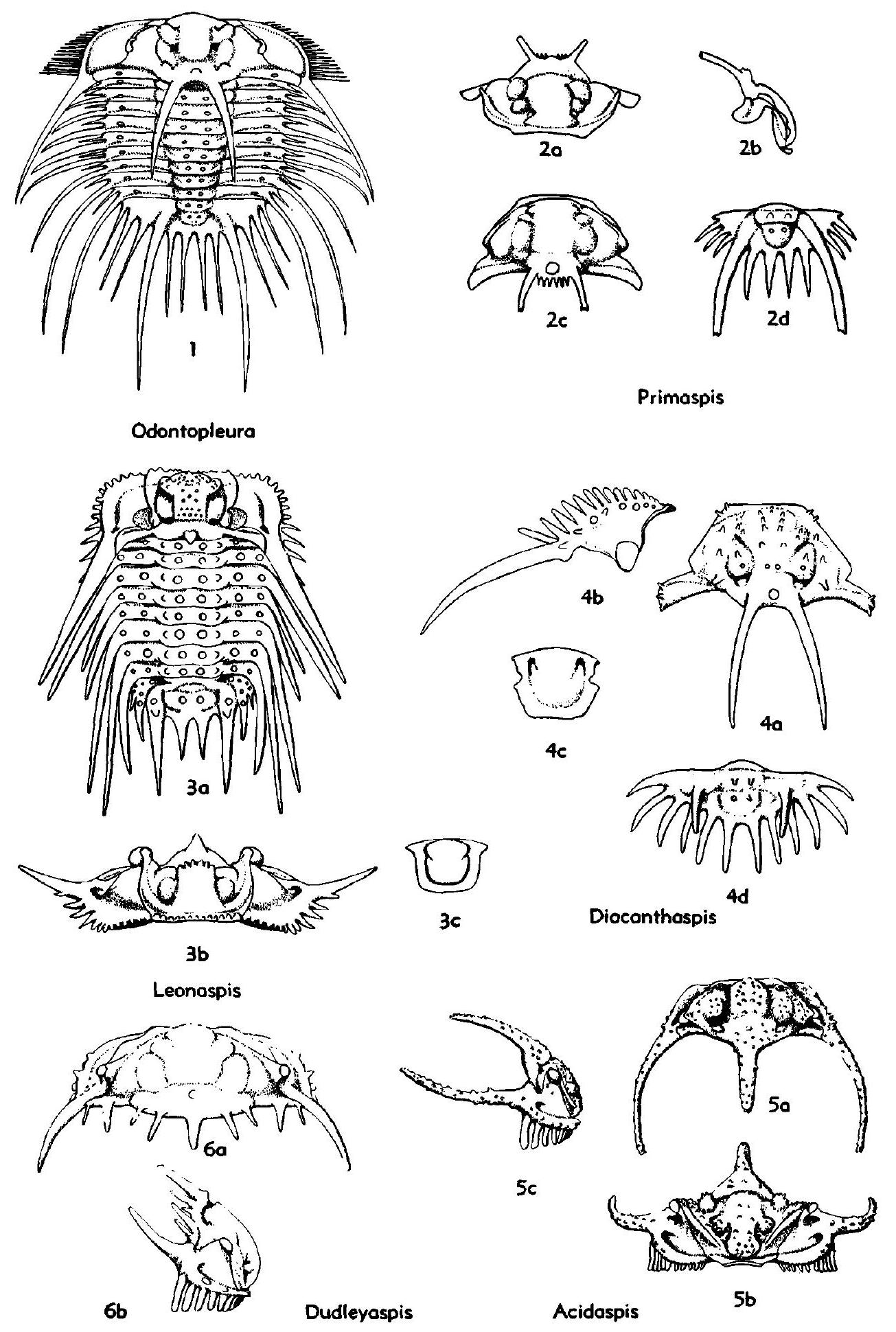Welcome to the Treatise on Invertebrate Paleontology!
Please enter a genera name to retrieve more information.

Odontopleura
Classification
Phylum:
Arthropoda
Subphylum:
Trilobitomorpha
Class:
Trilobita
Order:
Odontopleurida
Family:
Odontopleuridae
Subfamily:
Odontopleurinae
Formal Genus Name and Reference:
Odontopleura EMRICH, 1839
Type Species:
O. ovata
Images
(Click to enlarge in a new window)
Fig. 398, 1. *O. ovata, Boh., exoskel. (reconstr.), x1 (496*)
Synonyms
Geographic Distribution
Eu.
Age Range
Beginning Stage in Treatise Usage:
M.Sil.
Beginning International Stage:
Sheinwoodian
Fraction Up In Beginning Stage:
0
Beginning Date:
432.93
Ending Stage in Treatise Usage:
M.Sil.
Ending International Stage:
Homerian
Fraction Up In Ending Stage:
100
Ending Date:
426.74
Description
Glabella with relatively large lateral lobes, median part of occipital ring elevated and produced into long pair of occipital spines, also with faint occi- pital lobes, small eye lobes situated opposite basal glabellar furrows, angle between anterior and posterior sections of facial sutures 120 degrees, slender librigenal and posterior pleural spines, long anterior pleural spines, Pygidium relatively wide, posterior part with long horizontal pair of major border spines
References
Museum or Author Information
Classification
Phylum:
Arthropoda
Subphylum:
Trilobitomorpha
Class:
Trilobita
Order:
Odontopleurida
Family:
Odontopleuridae
Subfamily:
Odontopleurinae
Formal Genus Name and Reference:
Odontopleura EMRICH, 1839
Type Species:
O. ovata
Images
(Click to enlarge in a new window)
Fig. 398, 1. *O. ovata, Boh., exoskel. (reconstr.), x1 (496*)
Synonyms
Geographic Distribution
Eu.
Age Range
Beginning Stage in Treatise Usage:
M.Sil.
Beginning International Stage:
Sheinwoodian
Fraction Up In Beginning Stage:
0
Beginning Date:
432.93
Ending Stage in Treatise Usage:
M.Sil.
Ending International Stage:
Homerian
Fraction Up In Ending Stage:
100
Ending Date:
426.74
Description
Glabella with relatively large lateral lobes, median part of occipital ring elevated and produced into long pair of occipital spines, also with faint occi- pital lobes, small eye lobes situated opposite basal glabellar furrows, angle between anterior and posterior sections of facial sutures 120 degrees, slender librigenal and posterior pleural spines, long anterior pleural spines, Pygidium relatively wide, posterior part with long horizontal pair of major border spines
